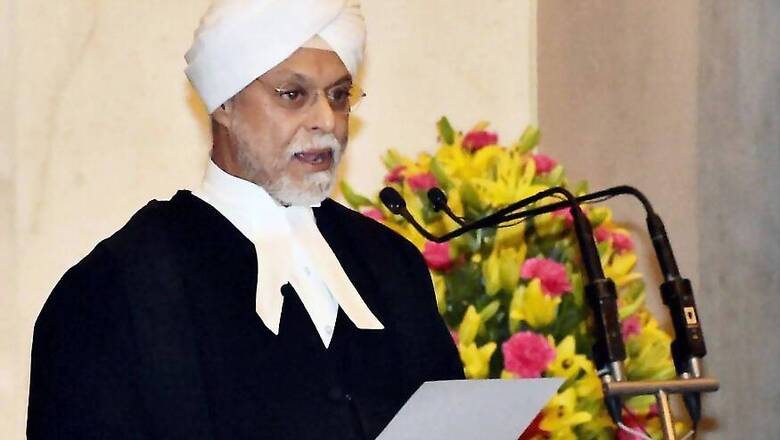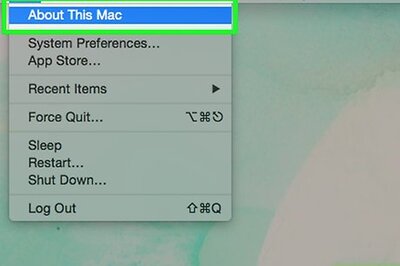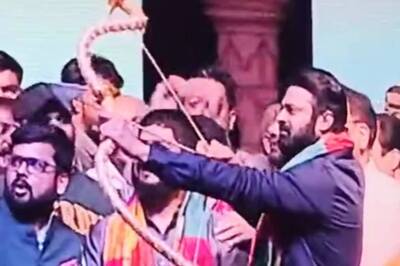
views
New Delhi: Did Chief Justice of India JS Khehar’s attempt to send out a message on judiciary’s readiness to give up long summer vacation crumble down?
Even as Prime Minister Narendra Modi applauded top judiciary’s resolve to shorten their vacation to tackle mounting pendency, it seems the CJI’s ambitious plan could not take off quite well.
The summer break in the Supreme Court began on May 11 and it will end on June 30. The duration of vacations are fixed by high courts or the Supreme Court through rules and regulations, not by the government. The 2013 Supreme Court rules lay down that the period of the summer vacation shall not exceed seven weeks, and the top court is availing it for the entire seven weeks.
Justice Chelameswar has to head the five-judge Constitution Bench to examine challenges to Aadhaar. The CJI wanted this matter to be heard along with three other Constitution Bench cases during the vacation. But Justice Chelameswar did not play along. He put his foot down, and reportedly made it clear much before the vacation set in that he would not be in the country for most part of the break.
Subsequently, on March 30, Justice Khehar declared that he has approved three separate Constitution Benches during the vacation to examine issues, which if not heard now, “will not be decided for years”.
These three Benches were supposed to hear cases on validity of triple talaq, right to privacy for WhatsApp and Facebook users in India, and the issue of providing Indian citizenship to children of illegal migrants born in this country.
While the CJI himself led the Bench for adjudicating triple talaq, Justice Dipak Misra was to head the Bench on user’s privacy policy of WhatsApp. The third Bench was to be presided over by Justice Madan B Lokur.
The first case to fizzle out was the one relating to the citizenship of illegal migrants. Senior lawyers said that most of them were appearing in the other two Constitution Bench cases as well, and so they could not remain present before all three Benches at the same time. They also complained against a departure from a convention that cases are fixed in vacation after the consent of the lawyers.
Another argument was about retirement of Justice PC Ghose, who was a part of this Bench. It was pointed out that Justice Ghose will retire later in May and if the hearing does not conclude before the date of his retirement, it will have to be heard all over again by a new Bench. Faced with lawyers’ resistance, this Bench had to let go the idea of sitting during the vacation.
But in the process of preceding with the WhatsApp case, a vital point of law was sacrificed. This Bench said that it would not examine ‘right to privacy’ even though PIL petitioners had cited breach of this right as the most brazen violation WhatsApp committed in allegedly accessing, reading and sharing messages of its users.
Despite giving up a debate on such an important issue, the Bench could sit only for two days during which all it heard was whether the PIL in such a matter was maintainable or not. But even this preliminary issue could not be settled during the two-day proceeding.
CJI Khehar’s Bench remained the only one that could go the whole hog and complete what it started. This Bench continued hearings for six days to conclude the arguments and reserve it for judgment.
Not to forget, it was a Constitution Bench, headed by Justice Khehar again, which had heard the arguments on the validity of the National Judicial Appointments Commission (NJAC) in the summer vacation on 2015.



















Comments
0 comment